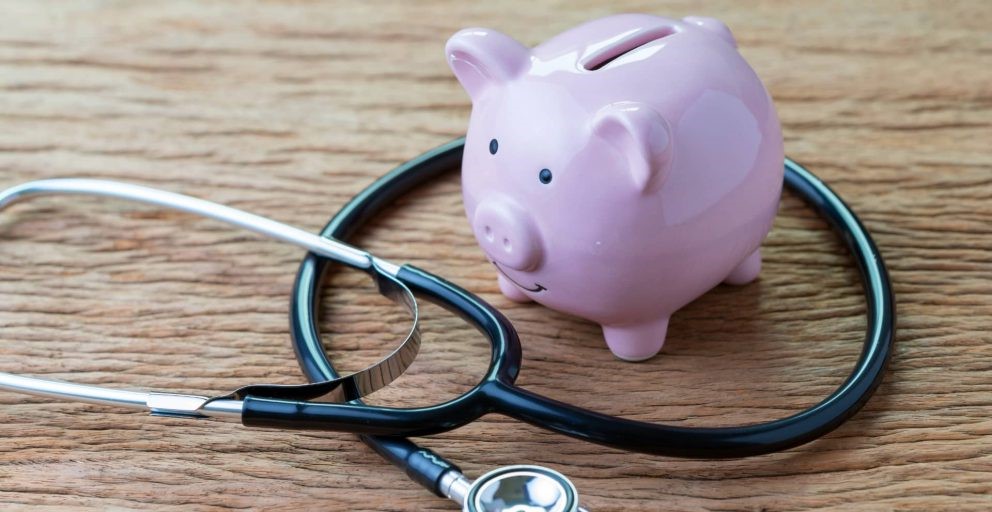- Definition of healthcare
- Importance of healthcare
- The benefits of healthcare
- Improved quality of life
- Early detection of diseases
- Access to medical care
- The cost of healthcare
- Health insurance
- Health care costs
- Health care policy
- The future of healthcare
- Health care reform
- Health care professionals
- Health care facilities
- Recap of the importance of healthcare
- Call to action
Definition of healthcare
Healthcare is a broad field concerned with providing medical care to individuals for purposes of maintaining and restoring the overall health and well-being of the people. Healthcare is the improvement of health via the prevention, diagnosis, treatment, amelioration, or cure of disease, illness, injury, and other physical and mental impairments in people. Healthcare is delivered by health professionals and allied health fields such as medicine, dentistry, pharmacy, midwifery, nursing, optometry, audiology, and more.
Importance of healthcare
Healthcare is an indispensable pillar of society, as healthy populations are more productive and live longer. It is the provision of health services and facilities to improve and maintain human health. Healthcare programs involve prevention, diagnosis, treatment, amelioration, and cure of illness.
The Benefits of Healthcare

Improved quality of life
- Healthcare is essential for improving the quality of life of individuals. It helps in maintaining and restoring the overall health and well-being of the people. With the help of healthcare, people can lead a healthy and productive life.
- Healthcare provides access to preventive care, diagnostic services, and treatment options. Preventive care includes regular check-ups, screenings, and immunizations. Diagnostic services include tests and procedures to diagnose diseases and conditions. Treatment options include medications, surgeries, and therapies.
- Healthcare also helps in managing chronic conditions such as diabetes, heart disease, and cancer. With the help of state healthcare, people can manage their conditions and prevent complications.
Early detection of diseases
- Healthcare plays a crucial role in the early detection of diseases. Regular check-ups and screenings can help in identifying diseases at an early stage, which can lead to better treatment outcomes and improved quality of life. Early detection of diseases can also help in preventing the spread of infectious diseases.
- Healthcare also provides access to genetic testing and counseling. Genetic testing can help in identifying the risk of developing certain diseases and conditions. Genetic counseling can help in understanding the results of genetic testing and making informed decisions about medical care.
Access to medical care
- Healthcare provides access to medical care for individuals. It ensures that people have access to the necessary medical services and facilities to maintain and improve their health. This includes preventive care, diagnostic services, and treatment options. Healthcare also provides access to mental health services, rehabilitation services, and palliative care.
- Healthcare also helps in reducing health disparities. It ensures that people have access to quality medical care regardless of their race, ethnicity, gender, or socioeconomic status. Healthcare also helps in addressing the social determinants of health such as poverty, education, and housing.
The costs of healthcare
Rising healthcare costs
- Healthcare costs have been rising for decades and are expected to keep increasing. In 2019, the US healthcare spending was nearly $3.8 trillion, or $11,582 per person. By 2028, these costs are expected to climb to $6.2 trillion—roughly $18,000 per person.
The rising healthcare costs are due to various factors such as an aging population, advances in medical technology, and the increasing prevalence of chronic diseases, according to Investopedia. The cost of prescription drugs and medical nondurables is also a significant contributor to the rising healthcare costs.
The impact of rising healthcare costs
The rising healthcare costs have a significant impact on individuals, families, and the economy. The high healthcare costs can lead to financial hardship, bankruptcy, and reduced access to medical care. The high healthcare costs can also lead to reduced wages, lower economic growth, and increased government spending, says chcf.org. The high healthcare costs can also lead to reduced health outcomes. People may delay or avoid medical care due to the high costs, which can lead to the progression of diseases and conditions. The high healthcare costs can also lead to reduced preventive care, which can lead to the development of chronic diseases.
Addressing rising healthcare costs
- Addressing the rising healthcare costs requires a multi-pronged approach. The approach should focus on reducing the cost of medical care, improving the quality of care, and promoting preventive care. The approach should also focus on reducing the administrative costs of healthcare and promoting transparency in healthcare pricing.
- The approach should also focus on addressing the social determinants of health such as poverty, education, and housing. Addressing the social determinants of health can help in reducing the prevalence of chronic diseases and improving health outcomes.
The access to healthcare
The importance of access to healthcare
- Access to healthcare is essential for maintaining and improving health outcomes. It is the ability to obtain healthcare services such as prevention, diagnosis, treatment, and management of diseases, illness, disorders, and other health-impacting conditions. For healthcare to be accessible, it must be affordable and convenient.
Many people do not have access to adequate healthcare1. Lack of access to healthcare can lead to poor health outcomes, reduced quality of life, and increased healthcare costs. Lack of access to healthcare can also lead to health disparities, which can lead to reduced health outcomes for certain populations.
The barriers to access to healthcare
- There are various barriers to access to healthcare such as financial barriers, geographic barriers, and cultural barriers3. Financial barriers include the cost of healthcare services, insurance coverage, and out-of-pocket expenses. Geographic barriers include the distance to healthcare facilities and the availability of transportation. Cultural barriers include language barriers, lack of trust in healthcare providers, and lack of knowledge about healthcare services.
The barriers to access to healthcare can lead to reduced health outcomes, increased healthcare costs, and health disparities. The barriers to access to healthcare can also lead to reduced preventive care, which can lead to the development of chronic diseases.
Addressing the barriers to access to healthcare
- Addressing the barriers to access to healthcare requires a multi-pronged approach. The approach should focus on reducing the financial barriers to healthcare, improving the availability of healthcare facilities, and promoting cultural competence in healthcare. The approach should also focus on addressing the social determinants of health such as poverty, education, and housing.
The approach should also focus on promoting preventive care and improving health literacy. Promoting preventive care can help in reducing the prevalence of chronic diseases and improving health outcomes. Improving health literacy can help in improving the knowledge and understanding of healthcare services and facilities.
Recap of the importance of healthcare
Healthcare is essential for maintaining and improving health outcomes.
The costs of healthcare are rising, and the rising healthcare costs have a significant impact on individuals, families, and the economy.
Access to healthcare is essential for maintaining and improving health outcomes, and many people do not have access to adequate healthcare.
The barriers to access to healthcare can lead to reduced health outcomes, increased healthcare costs, and health disparities.
Addressing the rising healthcare costs and the barriers to access to healthcare requires a multi-pronged approach.
The approach should focus on reducing the cost of medical care, improving the quality of care, and promoting preventive care.
The approach should also focus on reducing the administrative costs of healthcare and promoting transparency in healthcare pricing.
The approach should also focus on addressing the social determinants of health such as poverty, education, and housing.
Improving health literacy can help in improving the knowledge and understanding of healthcare services and facilities.
Promoting preventive care can help in reducing the prevalence of chronic diseases and improving health outcomes.
Call To Action
- Healthcare is essential for maintaining and improving health outcomes. It is important to recognize the importance of healthcare and the impact of rising healthcare costs and the barriers to access to healthcare.
- We can take action by promoting preventive care, improving health literacy, and addressing the social determinants of health such as poverty, education, and housing.
- We can also take action by advocating for policies that promote transparency in healthcare pricing, reduce the administrative costs of healthcare, and improve the quality of care.
- By taking action, we can improve health outcomes, reduce healthcare costs, and promote health equity.
FAQ
- Q1: What is healthcare?
- Healthcare is the maintenance or improvement of health through the prevention, diagnosis, treatment, and management of diseases, illness, disorders, and other health-impacting conditions.
- Q2: Why is healthcare important?
- Healthcare is essential for maintaining and improving health outcomes. It is important for the prevention, diagnosis, treatment, and management of diseases, illness, disorders, and other health-impacting conditions.
- Q3: What are the costs of healthcare?
- The costs of healthcare are rising, and the rising healthcare costs have a significant impact on individuals, families, and the economy1. The costs of healthcare include the cost of healthcare services, insurance coverage, and out-of-pocket expenses.
- Q4: What is access to healthcare?
- Access to healthcare is the ability to obtain healthcare services such as prevention, diagnosis, treatment, and management of diseases, illness, disorders, and other health-impacting conditions. For healthcare to be accessible, it must be affordable and convenient.
- Q5: What are the barriers to access to healthcare?
- There are various barriers to access to healthcare such as financial barriers, geographic barriers, and cultural barriers. Financial barriers include the cost of healthcare services, insurance coverage, and out-of-pocket expenses. Geographic barriers include the distance to healthcare facilities and the availability of transportation. Cultural barriers include language barriers, lack of trust in healthcare providers, and lack of knowledge about healthcare services.
- Q6: What is the multi-pronged approach to addressing rising healthcare costs?
- Addressing the rising healthcare costs requires a multi-pronged approach. The approach should focus on reducing the cost of medical care, improving the quality of care, and promoting preventive care. The approach should also focus on reducing the administrative costs of healthcare and promoting transparency in healthcare pricing.
- Q7: What are the social determinants of health?
- The social determinants of health are the conditions in which people are born, grow, live, work, and age. The social determinants of health include poverty, education, and housing.
- Q8: What is health literacy?
- Health literacy is the ability to obtain, process, and understand basic health information and services. Health literacy is important •for making informed decisions about healthcare services and facilities.
- Q9: What is preventive care?
- Preventive care is healthcare that is focused on preventing the development of chronic diseases and improving health outcomes1. Preventive care includes screenings, vaccinations, and lifestyle changes.
